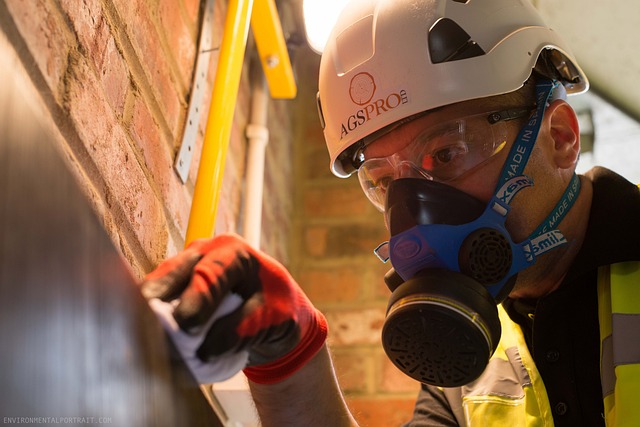In the dynamic, security-focused retail industry, robust retail background verification is essential for building customer trust, preventing fraud and theft, and ensuring workplace safety. Advanced technology streamlines traditional manual checks, enabling quick access to records while adhering to legal standards. Continuous improvement through regular reviews, data privacy protection, and staff training strengthens these processes, ultimately bolstering the integrity of the retail industry's background check practices.
In today’s digital era, the retail industry faces heightened scrutiny. Understanding the importance of retail background verification is crucial for upholding standards and fostering customer trust. This article delves into the key elements driving this process, exploring how technology streamlines verifications while emphasizing best practices for implementation and continuous improvement. By examining these strategies, retailers can enhance operational integrity and better serve their customers.
- Understanding the Importance of Background Checks in Retail
- The Role of Background Verification in Enhancing Customer Trust
- Key Elements of a Comprehensive Retail Background Check Process
- Technology's Impact on Streamlining Retail Background Verification
- Best Practices for Effective Implementation and Continuous Improvement
Understanding the Importance of Background Checks in Retail

In the dynamic landscape of retail, where customer trust is paramount, implementing robust security measures is non-negotiable. Background checks stand as a cornerstone of this strategy, playing a pivotal role in safeguarding both consumers and businesses within the industry. Retail background verification processes help uncover potential red flags, ensuring that employees and partners are who they claim to be. This is particularly crucial given the high-value items and sensitive information frequently handled by retail staff.
By conducting thorough background checks, retailers can mitigate risks associated with fraud, theft, and security breaches. These verifications act as a filter, filtering out individuals with suspicious histories or malicious intent. As the retail sector continues to evolve in the digital age, where online transactions and data privacy are paramount, robust background verification becomes an indispensable tool for maintaining high standards and fostering customer confidence.
The Role of Background Verification in Enhancing Customer Trust

In today’s digital era, transparency and security are paramount in the retail industry. Retail background verification plays a pivotal role in enhancing customer trust by ensuring that every interaction is safe and reliable. By implementing rigorous background checks for employees and vendors, retailers can mitigate risks associated with fraud, theft, and other malicious activities.
This process helps to build a robust defense against potential threats, allowing businesses to safeguard their operations and customers’ sensitive information. Retail background verification not only protects the interests of the retailer but also reassures shoppers that their safety is a top priority. It fosters an environment of trust, encouraging repeat business and strengthening the retailer’s reputation in the market.
Key Elements of a Comprehensive Retail Background Check Process

In the dynamic landscape of retail, ensuring the integrity and safety of the workforce is paramount. A comprehensive retail background check process serves as a robust shield against potential risks. It involves several key elements that collectively paint a detailed picture of an applicant’s history. These include verifying employment history, checking reference details, and scrutinizing criminal records, all while adhering to legal and ethical guidelines.
The process should encompass education and training verifications, essential for gauging skills and qualifications. Additionally, it may incorporate social media and online presence checks to uncover unperceived aspects of an individual’s character. A thorough background check not only safeguards stores from internal threats but also fosters a culture of trust among employees, customers, and stakeholders alike, positioning the retail industry as a responsible guardian of its community.
Technology's Impact on Streamlining Retail Background Verification

In today’s digital era, technology has revolutionized retail operations, and background verification is no exception. Retail background checks have traditionally been a manual and time-consuming process, but technological advancements have significantly streamlined this aspect of retail industry standards. Online platforms and databases now allow for efficient and quick access to comprehensive employment and criminal history, enhancing the accuracy and speed of background verifications.
Automated systems enable retailers to conduct thorough screenings, ensuring they meet legal requirements while saving valuable time and resources. This technology facilitates a more comprehensive view of an applicant’s background, helping to mitigate risks and ensure a safer working environment. Retailers can now quickly verify credentials, reducing the chance of hiring unqualified or potentially dangerous individuals.
Best Practices for Effective Implementation and Continuous Improvement

Implementing robust retail background verification processes is only the first step; continuous improvement is key to maintaining high standards. Effective practices include regular reviews and updates of check criteria based on industry trends and evolving legal requirements, ensuring comprehensive coverage of relevant aspects like criminal history, employment eligibility, and professional qualifications.
Additionally, leveraging technology for streamlined verification can enhance efficiency. This includes utilizing automated data validation tools, digital document checks, and secure online platforms for seamless background screening while upholding data privacy and security standards. Regular training and communication with staff on the importance of accurate record-keeping and adherence to policies further strengthens the overall integrity of the retail industry’s background check practices.






